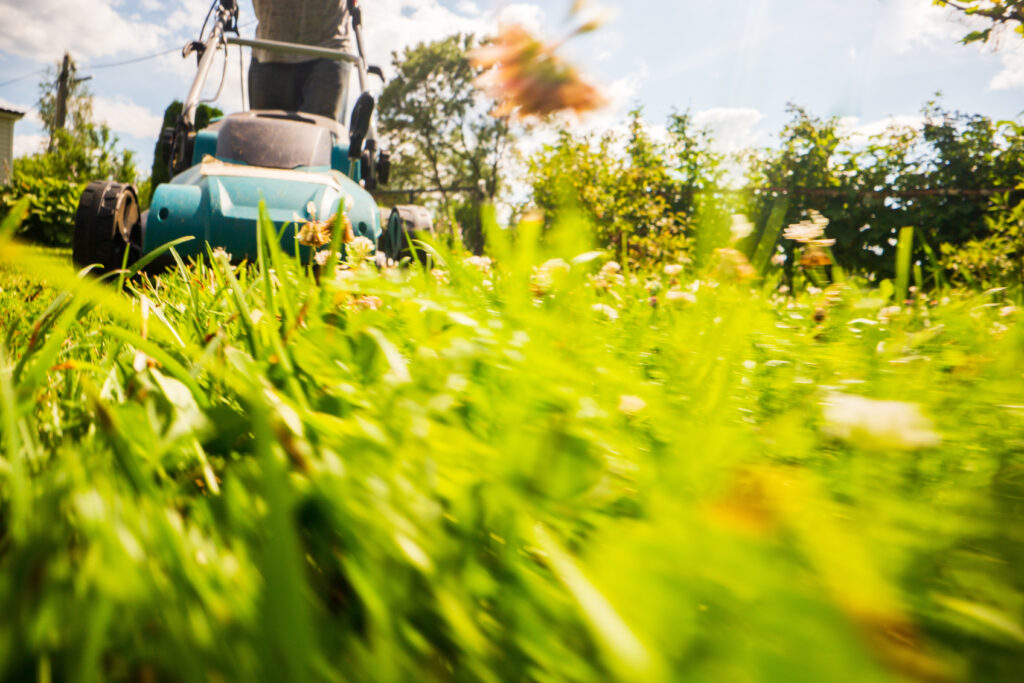As we welcome the warmer months, gardens across Tunbridge Wells are poised to burst into life. This renewal brings not just beauty but also potential challenges for landlords and tenants alike. However, gardens are not as a frequent source of tenancy deposit disputes, which emphasises the need for clear guidelines and responsibilities when it comes to maintaining these green spaces.

Who is Responsible for Garden Maintenance?
Understanding the division of responsibilities can prevent many disputes before they arise. Generally, tenants are expected to handle routine maintenance which includes keeping the garden free from debris, mowing the lawn and maintaining the overall tidiness of the space. This is typically outlined in the tenancy agreement.
However, significant tasks like tree trimming or major landscaping are usually the responsibility of the landlord, especially as these often require professional handling and are integral to maintaining the property’s structural and aesthetic integrity as stipulated by section 11 of the Landlord and Tenant Act 1985.
Incorporating a Garden Clause in Your Tenancy Agreement
A well-defined garden clause is essential in any tenancy agreement. It helps in explicitly stating what is expected from the tenant regarding garden maintenance. Key points to include are:
Tenant Responsibilities: Specify routine tasks like grass cutting and shrub trimming.
Usage Guidelines: Define what alterations or additions tenants can make, such as planting flowers or installing decorations.
Condition on Departure: Ensure tenants understand the garden should be returned in the condition it was received.
Landlord Obligations: Clarify any tasks that are managed by the landlord or a maintenance crew.
Preventing Garden Related Disputes
To minimise disputes and maintain your property’s appeal, consider the following tips:
Opt for Low Maintenance Designs: Choose straightforward, hardy plants and simple landscape designs to reduce the need for constant care.
Prepare Between Tenancies: Conduct a thorough clean up of the garden between leases. This not only maintains your property’s appeal but also sets a standard for incoming tenants.
Safety Checks: Regularly inspect the garden for any potential hazards such as loose paving stones or unstable features.
Provide the Right Tools: Supplying tenants with the necessary gardening tools can encourage proper garden care.
Regular Inspections: Make garden inspections a part of your routine property checks. This helps address any issues before they escalate.
Enhancing Small Outdoor Spaces
For properties with limited outdoor areas, like flats with balconies, maximising these spaces can significantly enhance tenant satisfaction. Suggestions include:
Decorative Planters: Use vertical gardens or hanging plants to beautify the space without sacrificing floor area.
Low Maintenance Options: Opt for plants that require minimal watering and care, such as succulents.
Functional Furnishings: Incorporate compact and durable outdoor furniture to make the space more usable and inviting.
Guidance for Tenants
Communication is key in ensuring tenants understand their responsibilities and the terms of their lease regarding garden maintenance:
Clarify the Garden Clause: Encourage tenants to fully understand their obligations as outlined in the tenancy agreement.
Regular Maintenance: Discuss the expected routine care like mowing and watering.
Report Issues Promptly: Remind tenants to report any garden-related problems immediately to prevent deterioration.
A well-maintained garden not only enhances the curb appeal of your rental property but can also significantly impact tenant satisfaction and retention. By setting clear expectations, providing necessary tools and maintaining open lines of communication, landlords can ensure that their property’s outdoor spaces remain an asset rather than a point of contention.
Are you a landlord in Tunbridge Wells looking to enhance your property’s garden appeal? Contact Belvoir Tunbridge Wells today for tailored advice and support. Let us help you make the most of your investment!











